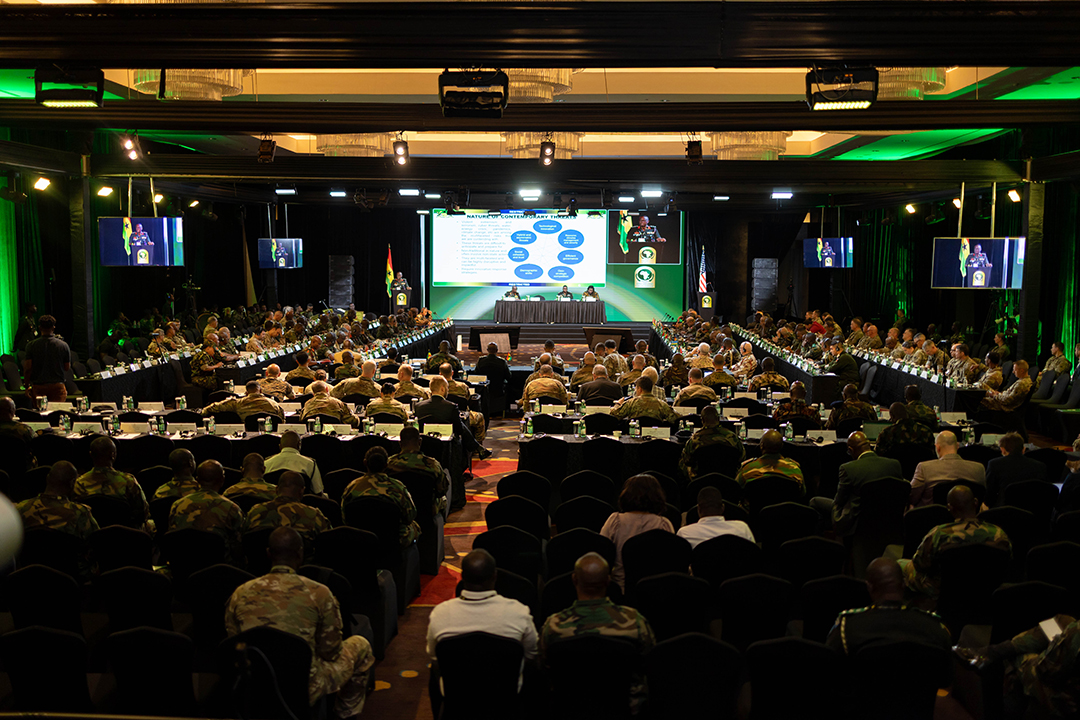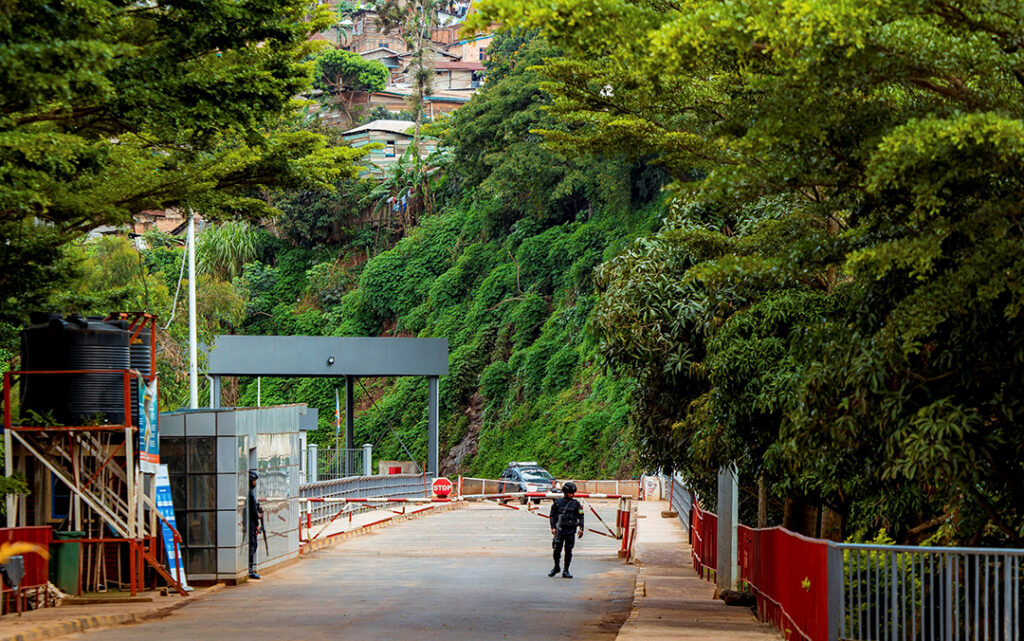As militaries work to improve security in Africa, one area is a persistent weak spot: borders. Often porous, poorly demarcated and neglected by the state, they are a haven for crime and terrorism.
During the African Land Forces Summit (ALFS) held in Accra, Ghana, in April, commanders from across the continent called for better cooperation and innovative approaches to secure shared borders.
“Most countries are faced with the same problem, which is the porosity of our borders,” Brig. Gen. K.T. Sesay, chief of Army staff of Sierra Leone told ADF. “It’s quite challenging, and we have land where there are no defined boundaries. So, it’s a recipe for incursion, and you have to collaborate with your neighboring countries to ensure your borders are secure.”
Too often, said attendees, borders are places where the state is absent and militant groups fill the void. Sometimes these groups provide services and recruit new fighters. They also use border areas as a base from which to launch attacks. In North and West Africa, 23% of all violent events occur within 20 kilometers of a border.
“Armed groups thrive in ungoverned spaces,” Maj. Gen. Emmanuel Kotia, national coordinator of the Ghana Boundary Commission, told ALFS attendees. “In an ungoverned space local grievances like ethnic, economic [problems] intersect with weak state presence. This is very dangerous for the security of nation states.”
Addressing border weakness starts with proper demarcation. A 2015 African Union survey found that only 29,000 kilometers of national borders in Africa were demarcated. That represents 35% of the continent’s total border length.

Several years ago, Ghana began the painstaking process of reaffirming its land borders with neighboring countries. This has involved consulting colonial-era maps, replacing damaged or displaced boundary pillars, and conducting outreach and sensitization programs for communities on both sides of the borders.
“The local communities that stay along those borders do not recognize the land boundaries. They stray into various countries,” Kotia said. “So, you go along the land boundaries, and you realize Togolese have built in Ghana and Ghanaian farmers have built their farms in Togo. It’s not their fault; it’s because they cannot identify the boundaries.”
Countries also are investing in technology. Kotia urged ALFS attendees to make progress on using biometric identification cards, ePassports, and surveillance through drones and satellites. A suite of systems known as “smart border” technology can help capture data from people and vehicles crossing borders and share it instantaneously across government agencies.
Experts called for strengthening mechanisms that allow sharing of intelligence and lessons learned between security professionals. These can include joint patrols, joint border posts and mobile interdiction teams.
Some attendees said they rely on traditional, low-tech cross-border collaboration. Armed Forces of Liberia (AFL) Col. Roland T. Bai Murphy, commander of the 23rd Infantry Brigade, said his country has a two-pronged approach. It has developed partnerships with neighbors Côte d’Ivoire, Guinea and Sierra Leone to share intelligence and synchronize operations along the border. Liberia also has worked with border communities whose familial networks straddle two countries. These networks helped the AFL develop a type of early warning system to alert authorities of possible threats.
“Over 80% of our borders are covered by dense forests, so it is difficult to monitor,” Murphy told ADF. “Even if you have surveillance equipment like drones you can’t look down into the forest. So, we tend to rely on human intelligence.”
Dr. Wafula Okumu, executive director of the Nairobi-based Borders Institute, said this type of human-centric border management strategy is vital. He said effective border control starts with “blue sky conversations,” in which authorities sit down in villages with border population groups to hear how they manage border issues and how the state can help.
“You need to find out how to incorporate local ideas into your own. It’s a win-win,” Okumu told the ALFS. “You’ll find you are able to have the best ally in terms of border management, because the locals are aware, they know the terrain, they know the routes that are used, they know the system.”

